Throughout the past seven years, the world has watched Yahoo! become the joke of the tech world by playing musical chairs with their CEO, practically giving up on their search business, losing market share, laying off employees, slashing salaries, and basically decimating shareholder and brand value simultaneously and in grandiose fashion. Now word comes down that Yahoo’s new CEO, Marissa Mayer- for those of you who’ve been living under a rock or on vacation for the past few weeks- is focusing some of her attention on the company’s battered culture. The shock on the bean counters’ faces must have been one for the ages. After all, how are free food and better workspaces going to improve the bottom line? The company has been criticized for everything from not having a vision, to losing its competitive edge, to being out-innovated in the market. One thing is for certain though, while more difficult to measure than eyeballs visiting a web page, or widgets sold this quarter- the company’s culture is everything. Or, as James Carville would have put it- It's your culture, stupid. One of the details most often missed is the human toll all of this bad news takes on the team inside of the company who is left behind to continue to execute. These baby steps Yahoo’s new CEO is taking to repair the culture and build a workplace where employees are once again proud to come to work should be lauded and will build trust and goodwill with the employees of whom she will soon ask so much. Want to improve your business? Increase morale? Improve employee engagement? Attract better talent?
Here’s an idea for you, try taking care of your people. Make a few decisions- not so much with an eye towards ROI, but rather with an eye towards building a culture where you won’t have to go to war for talent with your competitors. Talented A-players would choose to come to you, rather than to a competitor because of your reputation for building up its people. This is what Marissa is doing over at Yahoo, what Yang Yuanqing CEO of the China-based PC maker Lenovo did recently when he took $3 million he received above his normal bonus and distributed it to 10,000 underlings, and what you can do too. Sound far-fetched? Think it’ll hurt your bottom line? Funny, that’s what Wall Street said when in on January 5, 1914, Henry Ford announced he was going to begin paying a minimum wage of five dollars salary for all eligible employees working full eight-hour days. Guess what’s even crazier? Profits at Ford doubled from $30 million to $60 million between the years 1914 and 1916! Coincidence you think?
I believe it to be good human resources management, and am a bit surprised more HR leaders aren’t defending the new CEO's moves in the blogosphere. What do you think? Is Yahoo’s new CEO on the way to rebuilding one of the internet’s best known brands, or is she in over her head thinking free food and swag will return the internet giant to greatness? I’d love to hear your thoughts!
Alex is a co-founder and Managing Member of Collabor8 Learning, LLC, an instructional design and performance management consultancy. His firm collaborates with organizations to enhance the way they develop and train their people. To learn more about Collabor8 Learning, click here.
Alex can be reached at 786-512-1069, alex@collabor8learning.com or via Twitter@collabor8alex.

